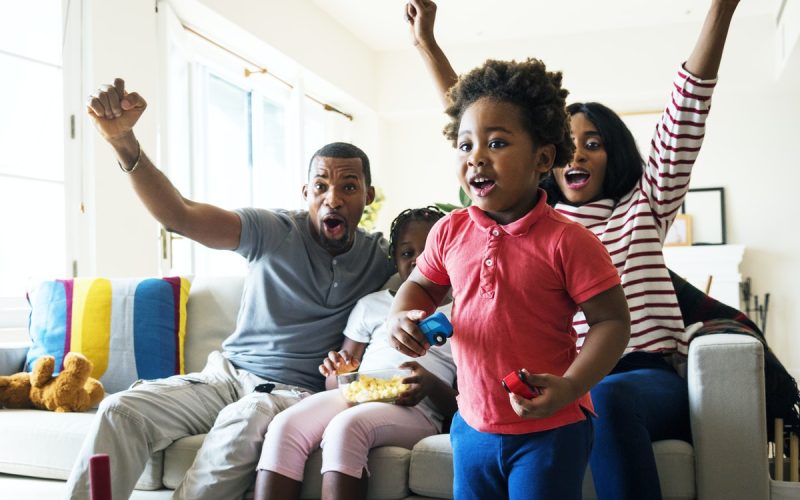Do you have a newborn and are considering parenting techniques? Is yelling at your kids getting old? The yelling doesn’t seem to be changing anything. You might want to attempt peaceful parenting.
There’s no need to link hands and sing Kumbaya in the forest, but it’s based on research and worth looking into.
Read further to learn how to quit punishing your child and promote good conduct with simple mental modifications.
What’s Peaceful Parenting?
Laura Markham, PhD, is a clinical psychologist and author of the popular parenting blog “Aha! Parenting.” “Peaceful Parent Happy Kid: How to Stop Yelling and Start Connecting” was published in 2012.
You can divide it into three basic ideas:
- Coping/ managing emotions as parents
- Connect/ communicate with your kids
- Coaching rather than controlling
Mindfulness is the key to peaceful parenting. This implies you live in the moment with your family and children.
Beyond that, you acknowledge and honor your emotions and past experiences or traumas that may influence how you respond to your children in difficult situations.
The goal is to build a strong parent-child bond. Its purpose is to teach children how to detect their emotions and make sensible decisions as they grow.
How to Be a Peaceful Parent?
Isn’t it simple? Here’s a breakdown of each of these areas.
Managing Emotions as a Parent
First and foremost, a tranquil parent examines the emotions and subjectivities that may affect their parenting style.
You’ve probably considered it. You watch your child tearing into the kitchen cabinet.
And all you can think about is the dreadful mess they’ll leave you—0 to 60 in 2 seconds. You may only see “red,” which means alarm.
Relax and deconstruct the scenario to regulate emotions. Why is your kid in the cupboard? Do they eat? Is that cabinet asking to be opened? Consider your feelings and the environment before yelling.
He often mentions rage as a secondary emotion to fear. So, step back and ask yourself, “What am I afraid of?” No one knows for sure.
Depending on the situation, it may not be easy. Regulating your emotions sets an excellent example for your children. It’s the reverse of blowing your top.
It is possible to experience and communicate rage after taking stock of your inner feelings. Instead of reacting instantly, you took a moment to collect yourself.
Communicating With Your Children
But I’m already really close to my child. She clings to my leg 24 hours a day. This isn’t about privacy but an intimate tie between parents and children.
Is this your first child? Or what’s keeping you from feeling that way? Dr. Markham suggests several ways to connect with your child:
- Attachment parenting involves an emotional and physical connection with young babies.
- Daily one-on-one “special” playtime, even 10 to 20 minutes, can make a big difference.
- Don’t use electronics when you’re with your kids
- Prioritizing family time, such as family dinners
- Hugs, cuddles, and other displays of affection
Create your routines to connect with your child, such as snuggling before getting out of bed. A stronger bond may help your youngster feel safer.
They learn to love themselves and others. Because children desire to cooperate and behave when they are close to their parents, Dr. Markham believes that connection is the key to peaceful parenting.
Coaching Rather Than Controlling
This last concept, coaching vs. controlling, may be the most difficult to comprehend.
You may question how your child will listen to you without retaliation. Is it weak to give up the power of yelling and punishment?
But what’s noteworthy is that compliance and good behavior tend to follow when you remove the power dynamic.
Your child may benefit more from coaching than punishment or bribery. For example, when you take away an iPhone, your teen may become enraged. Please bring certain conduct to their attention before enforcing it.
For better conduct, encouraging your child to express their feelings may be beneficial in the long term. Not just for you.
We want to teach kids the vocabulary and ideas to navigate the world with greater emotional intelligence.
A peaceful home is a nice plus.
Advantages of Peaceful Parenting
None of these parenting methods is preferable to others. Doctor Markham lists several benefits parents and their children may experience adopting this parenting style.
So, for instance:
- Better adjusted and happy kids. They may even cooperate more if you don’t yell at them.
- You’ll yell less.
- Your family may become closer through intentional connection.
- Your children may grow up to be emotionally sophisticated individuals with thoughtful consideration, moral self-discipline, and a sense of duty.
- You may create a link with your children that will last into adulthood.
- Mindfulness is at the heart of happy parenting. Numerous researches suggest mindfulness for both adults and parents.
In a study of preschoolers in Chile, mindfulness-based programs enhanced communication between parents and children, reducing stress and anxiety.
Reduced hyperactivity, depression, and parental satisfaction were also benefits.
Disadvantages of Peaceful Parenting
There aren’t many risks associated with peaceful parenting, especially for toddlers and older. This concept does support co-sleeping for newborn babies.
Co-sleeping raises the chance of SIDS. Hence, specialists advise against it. In addition to babywearing, you can choose safer sleep options for your infant.
Understand that no parenting method is perfect for every family. Few areas of peaceful parenting may disappoint you. But you won’t know until you try.
If peaceful parenting doesn’t work for you, give it more time and examine yourself. Fatherly’s Patrick Coleman says he tried peaceful parenting with mixed results.
Everything he did stemmed from a desire to be more observant of his children. Everyone was happier once he got there.
Examples of Peaceful Parenting
So, how can you apply this to your squabbling toddler or angry teen? If you’re changing parenting approaches, it may take some time, significantly.
Here are a handful of tips to get you started.
Toddler
If your 2-year-old is upset that you won’t purchase them a toy:
- If you’re in line and your child is screaming, try to be conscious and silently accept your emotions. Count to five or take a deep breath.
- Put yourself in your 2-year-old’s shoes, but set a limit. “I understand you want a new toy, but we don’t receive new toys every time we go to the store.”
- If they’re still wailing, hug them. Snuggles are a reward, but you’re working on a connection. It may lift their spirits.
Let’s face it: Trying to talk to a 2-year-old during a tantrum may not go well. You may need to remove your kid from the situation quickly, but you can avoid yelling.
Schoolkid
If your 7-year-old spilled paint on your new white carpet:
- Refrain from yelling about how pricey the carpet is. You may even want to say it out loud. “I’m trying to calm down before I tell you what’s going on.”
- Give them a chance to fix it. “This is a big mess,” for example. What should we do?” Then, let them brainstorm with you about the problem.
- Use of the paint without permission may then be brought to light. Rather than punish, explain. In a calm yet strong tone, explain your guidelines. Try grouping paint and other off-limits art supplies together, so there’s a limit.
Teen
If you suspect your 16-year-old has been drinking:
- Let’s face it. You won’t always be around when your teen is in distress. Whether you see it or learn about it later, try to keep your emotions in check. Does a lot happen in high school? Or do you fear they’re going astray? Recognize your feelings and consider discussing them quietly.
- This age group benefits from bonding instead of rebelling against parental demands. Take note if your teen retreats or pushes you away. Connection involves being more of a listener than a professor.
- Remind yourself that poor choices help your child grow. Teenagers are under much peer pressure and are still learning to make good decisions. Show how decisions, such as avoiding underage drinking, have favorable outcomes.
Conclusion
You can find many free resources on peaceful parenting online, in bookstores, or even at your local library. Here are some websites and books to check out:
- Aha! Parenting site
- Peaceful Parent, Happy Kids
- Peaceful Parent, Happy Kids: Workbook
- Peaceful Parent, Happy Siblings
- Peaceful Parent Institute website
If you like these ideas, you can connect with a peaceful parenting coach. Parenting is tough, and you may not want to read another parenting book on a Wednesday night.
Think about it if these ideas appeal to you. Peaceful parenting may be the key to a more harmonious home.





